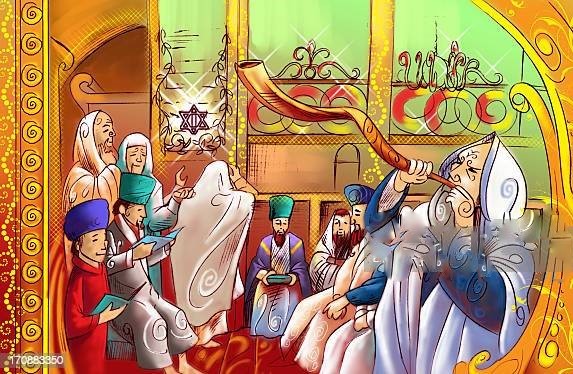SHABBAT: YESHIVAT HAVERIM – BABYLONIAN TALMUD p54

The rabbis taught: He who becomes sick, death approaching should be told to confess his sins,
for all those who are to suffer the death penalty must make a confession. When a man goes out
to a market (where there are always dangerous people in the crowd), he should consider himself
like one arrested by a sergeant. When his head aches, he should consider himself as one put in
prison. If he cannot rise from his bed, he should consider himself as one indicted before Gardom
(a criminal court); if be has good advocates to defend him, he may go free; if not, he cannot be
saved. The defending attorneys of a man (before divine justice) are penitence and good deeds. If
there should be nine hundred and ninety-nine accusers against him and only one to plead in his
favor, he is saved, as it is written: “If there be a messenger with him, an interpreter, one among a
thousand to show unto man his uprightness, then He is gracious unto him,” etc. [Job xxxiii. 23].
R. Eliezer b. R. Jose the Galilean said: Even if only one thousandth part of one advocate out of a
thousand plead in the man’s favor, although the rest speak against him, he is saved; because it is
said “one” defender out of a thousand suffices.
There is a Boraitha: R. Simeon b. Gamaliel said: “The laws of holy offerings, heave-offerings,
and tithes are integral parts of the Torah, and yet their observance was intrusted to the common people.”
 TUESDAY PRAYER: HESED-SHACHARIT שַחֲרִית MORNING PRAYER
TUESDAY PRAYER: HESED-SHACHARIT שַחֲרִית MORNING PRAYER TUESDAY PRAYER: HESED-TIKKUN CHATZOT תקון חצות-TIKKUN RACHEL & TIKKUN LEAH
TUESDAY PRAYER: HESED-TIKKUN CHATZOT תקון חצות-TIKKUN RACHEL & TIKKUN LEAH TUESDAY PRAYER: HESED- THE HARP OF KING DAVID – TIKKUN CHATZOT תקון חצות MIDNIGHT TO DAWN PRAYER
TUESDAY PRAYER: HESED- THE HARP OF KING DAVID – TIKKUN CHATZOT תקון חצות MIDNIGHT TO DAWN PRAYER